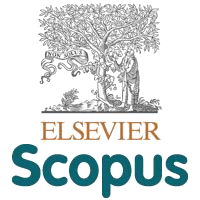Intergroup Forgiveness and the Nanjing Massacre: Influence of Online Reviews on the Attitudes of Nanjing and Non-Nanjing Citizens toward Japanese
Abstract
Among the events of the Second Sino-Japanese War (1937–1945), one of the best known and most notorious is the Nanjing Massacre, carried out by Imperial Japanese troops during December 1937–January 1938. This event has produced ongoing feelings of anger and distrust; but the need to distinguish between Japanese militarists and ordinary Japanese people has been highlighted. In the area of forgiveness, the topic of the Nanjing Massacre has particular relevance for the recent field of intergroup forgiveness. The research team randomly selected people in shopping malls, residential areas, and cafés to participate in the study. The sampling process lasted for 3 months. Initially the study selected 183 residents of Nanjing, Shanghai, Xi’an, Wuhan, Jinan, and Suzhou, and the final effective number of participants was 152. Among them, 72 identified as Nanjing citizens and 80 as non-Nanjing citizens. This participants first read news articles and online reviews and then filled out the Intergroup Forgiveness Questionnaire. For authenticity, news articles were selected from the official Weibo account called @Memorial Hall of the Victims of the Nanjing Massacre by Japanese Invaders, which is related to the annual national memorial ceremony for the massacre’s victims. Online reviews of the articles with directional characteristics were created. Therefore, based on the classification of directional characteristics, each review was considered either positive, neutral, or negative. The results revealed the following: (a) The directionality (positive, neutral, or negative) of online reviews significantly affected the level of participants’ intergroup forgiveness; (b) the influence of online reviews on intergroup forgiveness varied according to whether or not the respondent was a resident of Nanjing; (c) compared to non-Chinese groups, Chinese respondents showed lower levels of intergroup forgiveness as a result of their perceptions of the historical event as well as cultural and political differences. Based on the findings, we suggest that in future research on intergroup forgiveness there can be further focus on areas such as cultural background, and development of new measurement tools, and intervention models. In addition, this study has room for improvement in two aspects. First, in addition to directional features, online reviews have other characteristics. Specifically, those based on objective facts tend to be convincing, but those based on subjective sentiment are less so. Thus, the effect of online reviews on intergroup forgiveness was not examined from a multidimensional perspective in our study. Second, the sample size was relatively small, and included just six cities; thus, the representativeness of the sample needs improvement.




